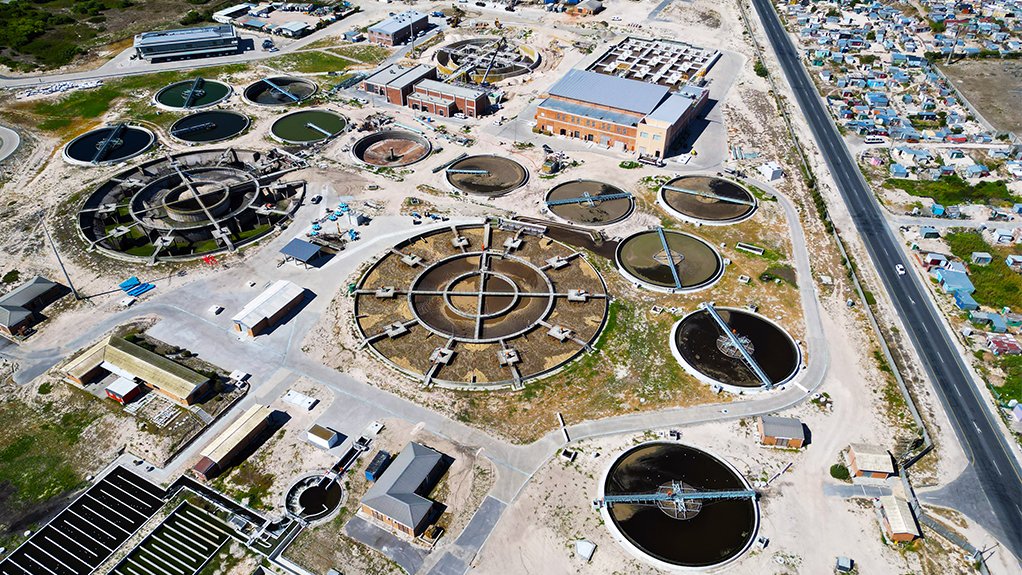Consulting engineers are necessary to ensure resilient infrastructure and investment viability and should be involved from the pre-investment phase.
The convergence of engineering and advisory services provides various benefits for project stakeholders: in addition to technical engineering advice, consulting engineers in advisory roles can advise on topics that encompass economic viability and resilience, explains consulting engineers firm Zutari chief clients officer Webb Meko.
Engineers providing investment and technical advice – ranging from cost insights for prefeasibility studies and return on investment predictions, to expertise in the appropriate sizing of infrastructure and assessing environmental factors – can ensure that investors and infrastructure owners maximise the project viability.
They can also determine the capital required, and consider the total cost of ownership in terms of the operation and maintenance. This enables investors to plan for cash injections and to establish a sustainable rate of investment for the entire project.
Meko says acknowledging this is particularly relevant, with the role of consulting engineers being downplayed.
However, downplaying the importance of design and engineering aspects in infrastructure results in non-resilient infrastructure that rapidly deteriorates.
Meko says decision-makers must factor in the importance of scientific research and design prior to starting infrastructure construction.
He also stresses the importance of ensuring resilient infrastructure during the planning and design phases: “If that is done properly, decision-makers can be confident that they are building resilient infrastructure that serves the intended purpose and has an optimum useful life cycle.”
Decision-makers are often not equipped with the knowledge required to build resilient infrastructure, but consulting engineers can evaluate and factor in key components, including the infrastructure’s intended use and any potential fatal flaws in the design.
He adds that decision-makers tend to rush into construction and, in some instances, implement decisions that are not carefully considered in terms of the engineering aspects.
This is more prevalent in the public than in the private sector, as the former still refrains from following a scientific approach at times, resulting in infrastructure that is not fit-for-purpose and is costly to maintain and operate.
Decision-makers and governments need to appreciate the importance of engineering and its impact on the economy and infrastructure, Meko adds.
“We can collectively succeed if we give this practice the necessary importance it deserves within our economy and everyday life,” he says.
Projects
Zutari demonstrates the importance of consulting engineers through the impact of its projects.
The company completed several projects recently, including the Zandvliet wastewater treatment works upgrade in Cape Town, and the 15-year Western Cape Integrated Water Resources and Drought Management Plan.
Zandvliet addressed water challenges in the impacted communities. The project treats effluent from the southern parts of Kuils River settlement, as well as the communities of Delft, Blackheath, Blackheath Industria, Blue Downs, Eerste River, De Wijnlanden, Thembokwezi, Mxolisi Phetani and Khayelitsha.
The existing plant was overloaded, with equipment and pipelines failing. Therefore, urgent rehabilitation was required to meet the increasing needs of the region, particularly in densely populated and fast-growing areas.
The aim of the project was to build capacity to enable the City of Cape Town (CoCT) to offer proper wastewater management and treatment to this region.
Meanwhile, as part of the 15-year Western Cape Integrated Water Resources and Drought Management Plan, Zutari devised schemes to ensure that Day Zero was avoided, says Meko.
Zutari was part of a group of engineers and technocrats that provided solutions for the Western Cape municipality. The municipality required technical planning capacity across all fields of government, achieved through the Integrated Water Resources and Drought Management Plan.
Through this appointment, Zutari helped the CoCT plan for a resilient future through an in-depth water study, and to develop a set of decision support tools for improved urban water planning, operations and bulk water management.
Meko concludes that the Western Cape government has implemented the plan, which will go a long way towards ensuring that water is well managed within the province.
Edited by: Nadine James
Features Deputy Editor
EMAIL THIS ARTICLE SAVE THIS ARTICLE
ARTICLE ENQUIRY
To subscribe email subscriptions@creamermedia.co.za or click here
To advertise email advertising@creamermedia.co.za or click here















